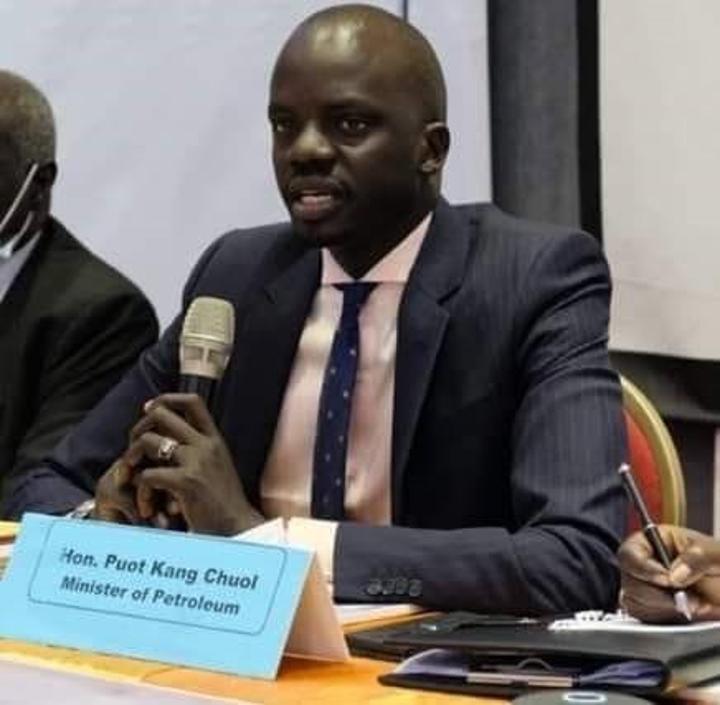Keji Janefer
Africa-Press – South-Sudan. South Sudan must now scale down her heavy reliance on oil and venture into other economic sectors due to growing concerns like climate change.
According to the Minister of Petroleum, Puot Kang Chol, there is a need for diversification of the country’s revenue sources because petroleum products will be obsolete in the next 10 to 30 years. Puot said this needs to be done as soon as possible.
“Our country must prioritise the diversification of our economy through smart investment of any money coming from the oil industry and proceed now into the development of the other non-petroleum sectors such as agriculture, mining, tourism, livestock and fisheries, forestry, infrastructure, security, finance, health, and education,” he said.
In an effort to reduce significant environmental contamination, three audit firms were chosen in September to conduct environmental audits in the oil fields in Unity State, the Upper Nile, and Ruweng Administrative Area.
Puot stated that the audit findings would assist the country in reviewing, improving, and strengthening its environmental laws.
He also said this would help the government take the correct actions in the restoration process and implement mitigation action plans to reduce the impact of petroleum activities on the environment.
According to the minister, efforts are being made by the government to maximise the value of petroleum resources and turn them into advantages for current and future generations, albeit in the short run.
He said, “The scary part is that the future of our petroleum sector is becoming very uncertain, and we must start planning for the time when our petroleum products will no longer be the most sought-after commodity in the market.”
“This will happen when most of our current customers have moved to renewable energy sources such as solar, wind turbines, geothermal, and hydropower, and more than 90-95 percent of the transportation system, including our vehicles, will be running on electricity provided either by solar, wind turbines, geothermal, or hydropower sources,” he further warned.
Untapped resources
Puot said that about 90 per cent of the crude oil in Africa is still untapped.
Ironically, the oil-producing nations were urged to hold production during the COP26 meeting held in November 2021.
He said such a decision would amount to a death sentence for countries like South Sudan, whose governments entirely depend on oil money.
Instead of reducing production, the minister said they lobbied for better technologies to help the oil-producing nations to increase their production.
“Congo forest alone [neutralises] 3.8 percent of carbon emissions; the whole of Africa produces 4 percent but somebody who is producing 20 per cent or 15 per cent is telling you to stop. “Are we being fair to one another?”
He said he told the summit that South Sudan had 3.5 billion barrels of oil unexploited, which he said could only be left if the country was paid not to go ahead with the exercise.
South Sudan is a signatory to the United Nations Framework Convention on Climate Change (UNFCCC), an international organization that prioritizes environmental protection.
The concluded 27th Conference of Parties (COP 27) in Sharm El Sheikh, Egypt, reaffirmed the global intention to move from the discussion, negotiation, and planning phases of the transition process from conventional fossil fuels to much greener and renewable energy sources by 2030, in accordance with the objectives of COP26.
For More News And Analysis About South-Sudan Follow Africa-Press






